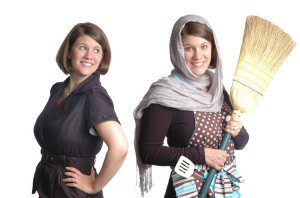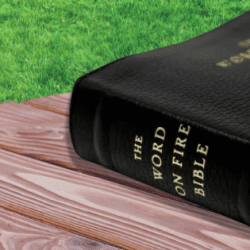 A couple weeks ago I read through Rachel Held Evans latest book, A Year of Biblical Womanhood. Already the fact that I have read the book has sparked a degree of debate among my friends and followers, all of whom seem to have strong opinions about her (and few of whom have actually read her books). For those who don’t know Rachel she is a popular voice in evangelicalism, and has written a number of controversial articles about women, sex, millennials and many other things. I have often been impressed with her ability to have a conversation about difficult things even when I might disagree with the content or conclusions she comes to.
A couple weeks ago I read through Rachel Held Evans latest book, A Year of Biblical Womanhood. Already the fact that I have read the book has sparked a degree of debate among my friends and followers, all of whom seem to have strong opinions about her (and few of whom have actually read her books). For those who don’t know Rachel she is a popular voice in evangelicalism, and has written a number of controversial articles about women, sex, millennials and many other things. I have often been impressed with her ability to have a conversation about difficult things even when I might disagree with the content or conclusions she comes to.
In A Year of Biblical Womanhood Rachel embarks upon a quest to try to fit into the gender roles given to women by religious communities who use the scriptures to forge rules about what is proper and improper behavior for women to have. Much or her project is involves silly ways to explore topics (e.g. She rents a digital baby to explore motherhood, holds up a sign at the entrance sign of her city praising her husband, sits on her roof as penance for grumbling, referring to her speaking events as “prophesying” during the project to avoid accusations of being a “teacher”), some of the efforts seem to be authentic attempts at developing new skills (e.g. learning to cook, sew, and pray contemplatively) and some of the efforts involve getting to know women who have chosen a way of life involve strict gender roles (Amish, Orthodox Jews).
There is a lot I could say about this book but most of it has been said already since the book came out a while ago. The hipster Christians (aka post-evangelicals) critique it for being a rip-off of A.J. Jacobs, the conservatives see it as an attack on the Bible, the atheists seem to see it as an absurd project which reveals the inherent dangers of seeing such an archaic texts as a norm for life.
My takeaway is that Rachel is addressing the parts of her own faith that make her uncomfortable, and for that I applaud her. There is no faith tradition that doesn’t have dark corners that we are ashamed of. There is no church that is free from skeletons in their closet. There is no community that doesn’t struggle from time to time with certain verses of their holy texts. I am much more comfortable with people who are able to admit where they struggle and invite you into the tussle than those who bury their doubt and boldly proclaim they have all the answers.
This book was a fun read about who Rachel is and how she struggles. Did I have issues with the book? Of course! The scholarship was shoddy, the terminology was sometimes inaccurate, the conclusions she came too were at times too simplistic, but that’s OK because this isn’t a work of scholarship or a proposal on how to change the world. It’s an invitation into a life and a struggle around one of the issues that continues to haunt the Christian Church today: gender. We need books like this because if the Church can’t give space for people struggle out loud we will find our members will struggle outside.












